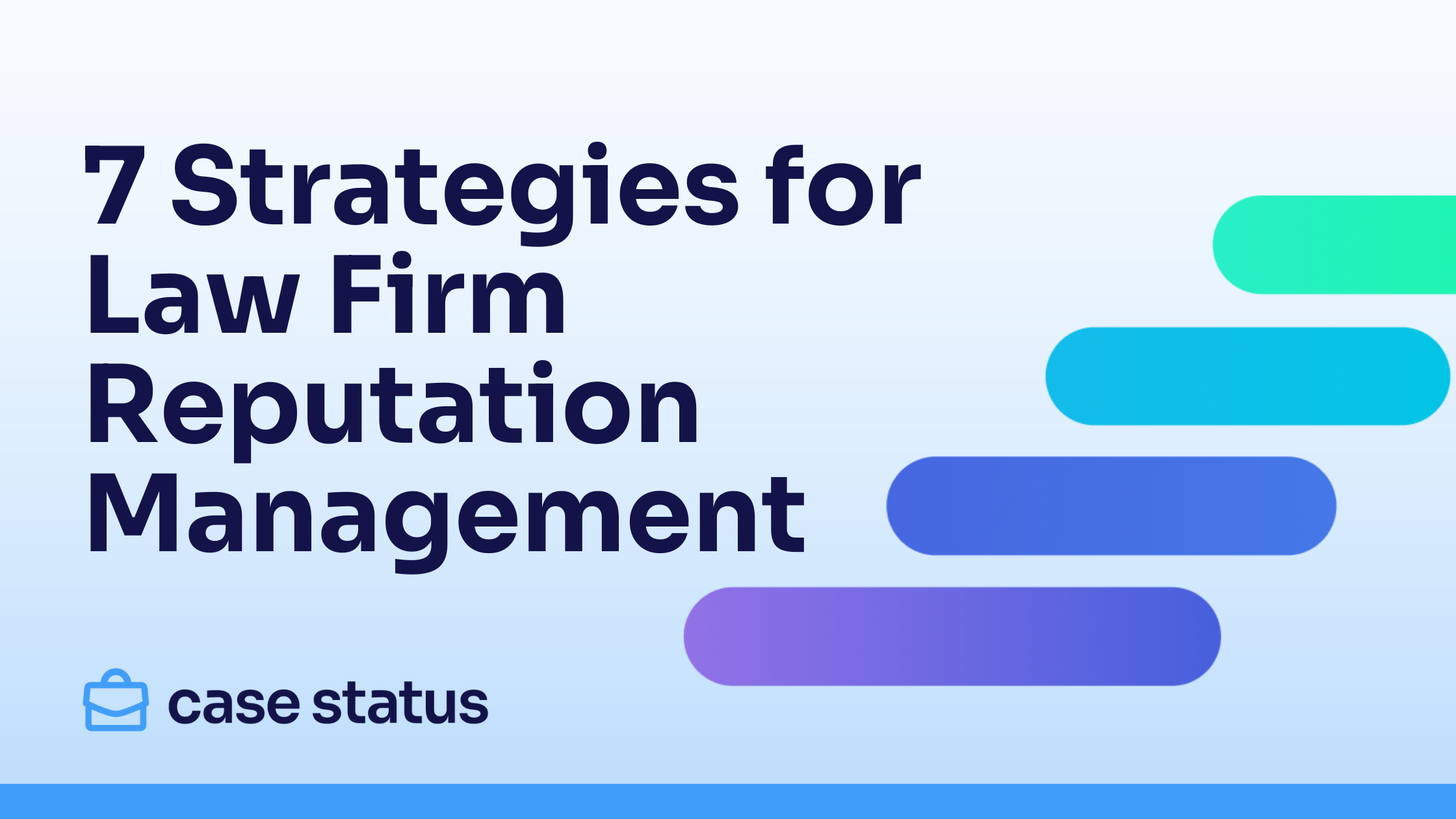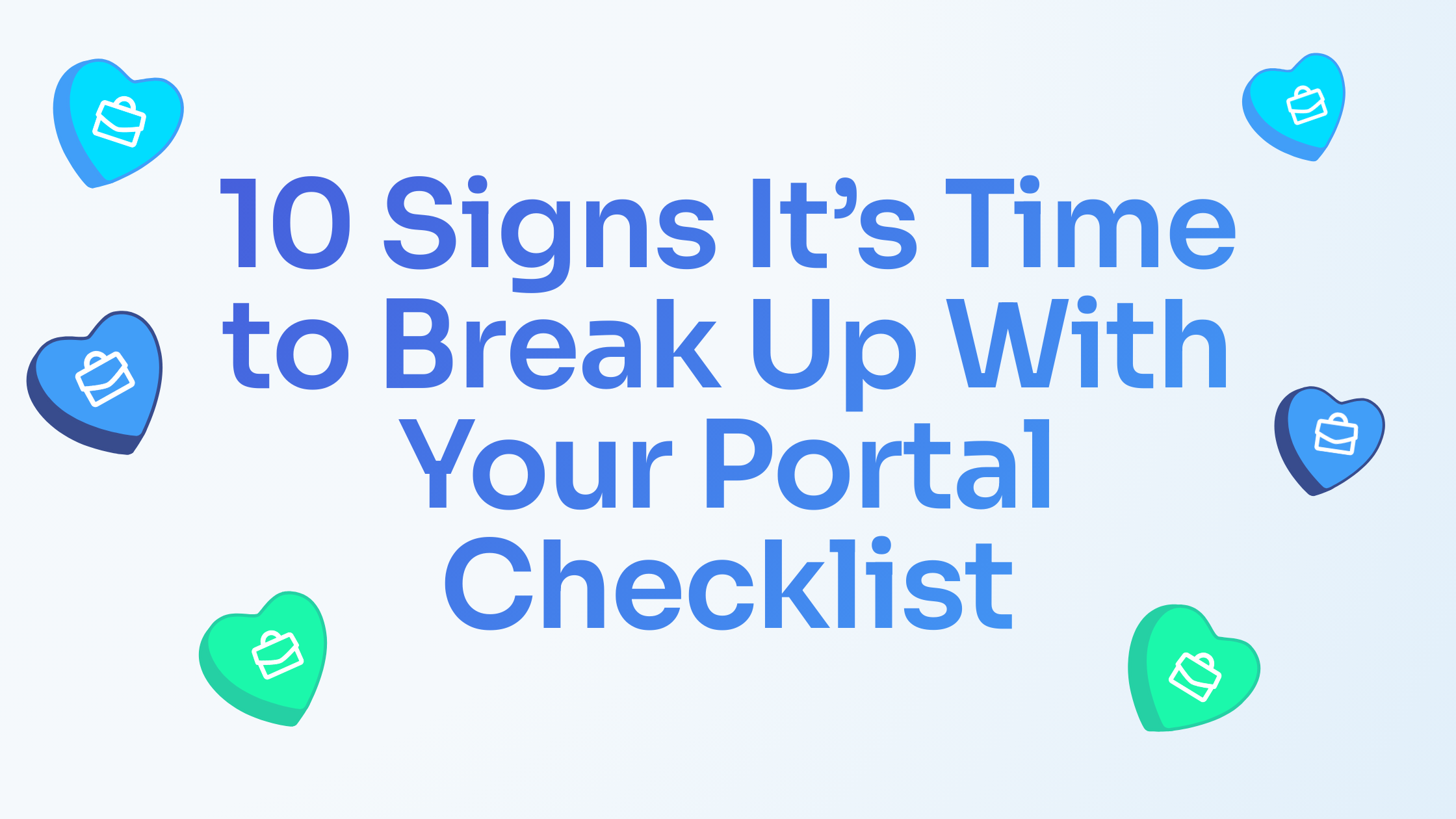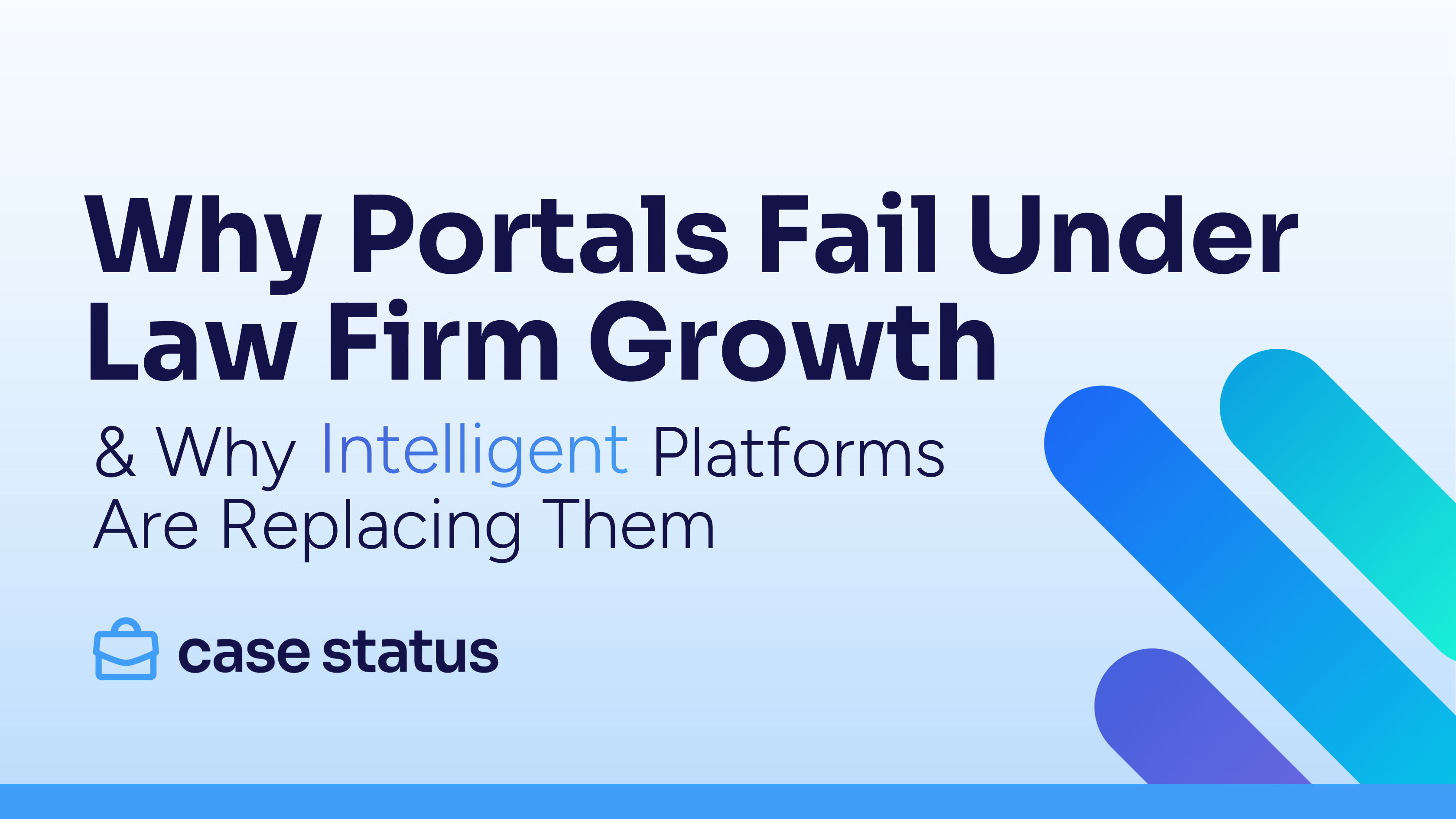.png)
AI is rapidly changing the way legal professionals work. It's not replacing lawyers; it's making their workflows faster, smarter, and more client-focused.
Whether you're drafting contracts, reviewing case files, or communicating with clients, AI tools can take on the heavy lifting and free up your time for higher-value tasks. But with so many platforms available and ethical stakes running high, it's crucial to understand how to use AI effectively — and responsibly — in your practice.
Key Takeaways From This Guide
- Your firm's future is hybrid. Blending AI with human expertise delivers optimal outcomes.
- Different tools serve different functions. ChatGPT excels at drafting and research, Claude shines in communication, and Perplexity is great for real-time legal research.
- Human oversight is non-negotiable. AI-generated content must be reviewed to ensure legal accuracy and client confidentiality. Ultimately, the attorney is responsible for ensuring any usage of AI provides truthful and accurate information.
- Client communication is an overlooked opportunity. AI can personalize and streamline client interactions, improving satisfaction and retention.
- Ethics and data privacy matter. Firms must adopt AI responsibly, ensuring compliance with standards like HIPAA, GDPR, and SOC 2. It's imperative to set standards for your firm to avoid training models with your client information.
- The right implementation can transform your firm. Blending AI with human-in-the-loop workflows can improve both productivity and client experience.
Use Cases Of AI in Legal Documents
AI has a number of strong use cases in regard to legal documents, including generating, reviewing, analyzing and summarizing them. However, it's important to be strategic about how you utilize AI. Implementing it smartly for tasks it's well-equipped for can speed up workflows, while in some areas it has little impact.
Legal Document Generation
Drafting legal documents is often a repetitive and labor intensive process, making it ideal for AI. Instead of spending hours drafting contracts and agreements, you can prompt an AI tool to create these documents for you.
For example, if you want a unilateral non-disclosure agreement, you could ask your AI platform for one using the following prompt: Draft a five-year non-disclosure agreement between Company A, which is a financial services company, and a director-level employee.
The agreement should include a definition of confidential information, appropriate uses of such information, any exclusions and applicable state laws. With a starting draft, this puts the attorney in the position of editor instead of author.
Note: Always review AI-generated documents for accuracy, consistency, and legal soundness. While generative AI has made significant strides, it's still prone to errors, omissions, or inconsistencies. A poorly drafted document — especially one with an overlooked loophole — can damage your firm's credibility and open you up to serious risk.
Legal Document Review & Analysis
AI can be extremely useful for reviewing and analyzing legal documents. For example, AI can help you spot deviations from standard practice in your documents or flag potential conflicts with state or federal laws.
However, it's essential to use AI for legal document review and analysis ethically by incorporating humans in the loop design. For instance, before feeding any legal documents into an AI model, you'll need to anonymize the document in order to protect client confidentiality. Similarly, any changes suggested by AI should be manually reviewed to ensure they are legally compliant.
Legal Document Summarization & Classifications
AI can be used to summarize legal documents, which can save firms a lot of time while being able to provide a better experience for clients. You can use AI to generate an analysis of a large number of texts, which is ideal if you're a medium or large firm trying to keep track of an overall argument across a large volume of legal documents.
Document summarization is also highly effective at helping firms with client retention. For instance, you could prompt an AI to translate a workers' compensation claim into plain English, which will help the client better understand the nature of their claim and how it affects them.
Why Human-in-the-Loop Design is Essential for Legal AI Tools
Human-in-the-loop design actively integrates human input into AI systems. It's especially important for law firms since it ensures there is human oversight, which improves accuracy and protects client confidentiality.
With human-in-the-loop design, AI is able to improve legal document accuracy without replacing staff. For example, your staff can use AI to quickly draft documents, while still being able to make edits. Those edits, in turn, help improve the AI, so it suggests even better drafts in the future.
Human in the loop design also integrates security measures for protecting sensitive data. For instance, if you're using ChatGPT, you'll need to manually use a temporary chat or anonymize the data, so confidential information doesn't get used to train ChatGPT's model. This human intervention helps keep your clients safe and protects your firm's reputation.
AI systems are evolving rapidly in the legal sphere, with some firms even beginning to wonder: Can AI provide legal advice to clients? While AI has an integral role in helping improve legal services, firms need to maintain ongoing AI education, ethical compliance and data privacy through human-in-the-loop measures.
Practical Applications of Popular AI Tools in Legal Document Work
Popular AI tools can be utilized in a variety of ways by law firms to help with legal documents. We'll look at three of the most popular AI models — ChatGPT, Claude and Perplexity — and how each one can best be used in your legal practice.
Be aware that because popular AI tools are not specifically tailored to the legal industry, you'll need an understanding of how to prompt AI, so it gives responses more tailored to legal practice. Alternatively, you can opt for an AI specifically built for law firms.
We suggest exploring the best legal AI tools for attorneys to find out which legal AI system is the best match for your firm.
How ChatGPT Supports Legal Document Creation, Review & Research
OpenAI's well-known AI tool is one of the most well rounded, and its popularity is showing how ChatGPT is changing the legal industry. It has a wide range of features, including the ability to transcribe and summarize audio and video recordings that can then be used to generate legal documents. You can also create custom GPTs for specific tasks and projects.
For example, you can make a custom GPT specifically trained in personal injury case law in the state you operate in. Doing so helps decrease the risk of the AI model generating documentation using irrelevant laws and case histories.
When you have a team account, your data will also be automatically excluded from training, which helps protect client confidentiality. However, individual account holders need to actively take steps to protect client data, such as by anonymizing data before feeding it into ChatGPT.
Also, beware of ChatGPT's vulnerability to creating false information (also called hallucinations). There have been instances of ChatGPT inventing entire cases, for example, which have gotten some attorneys into trouble. Verify any information ChatGPT provides; otherwise, you risk serious professional and legal repercussions.
Explore how to contruct an effective prompt for different AI platforms
How Claude Supports Legal Document Writing
Claude stands out for its language generation capabilities, which is ideal for writing engagement letters and client advisories, as well as translating complex legal topics into plain language. It is capable of producing highly conversational text, making it a good tool for drafting communications with clients.
Claude also generally gets higher points for ethical standards. It doesn't use prompts for training unless told to do so, for example, and it has safeguards in place to prevent it from generating harmful content.
However, that emphasis on safety means it can sometimes struggle with more complex prompts. Because it filters out more content than other AI models, you may get less-detailed responses from Claude than you'd like.
How Perplexity Supports Legal Document Research
Perplexity is the best of the major AI platforms for in-depth research. Unlike some AI platforms, its paid model uses real-time information, ensuring responses are up to date, and it can retrieve case law, statutes and other secondary sources. It also stands out for backing up its facts and claims with clickable references, so you can easily verify information.
And verify you should. Perplexity relies entirely on third-party large language models instead of using its own. As a result, it's prone to the same errors those LLMs are prone to, including hallucinations.
Also, while Perplexity has a free option, it only includes access to the Standard AI Model, which may not be up to date. Its paid options are recommended, but they generally cost more than what the competition charges.
Underserved Areas of AI in Legal Practice
While AI is increasingly incorporated in the legal field, so far it has mostly been used to improve internal processes, such as drafting and legal research. An overlooked opportunity exists for AI to help law firms improve client engagement, especially in terms of bridging the client experience gap.
According to the 2025 Legal Client Experience Report, 72% of attorneys describe their firms as “caring,” whereas only 40% of clients describe firms as such. By relying too much on their own perceptions, attorneys often lack hard data to accurately judge whether or not their clients are having a positive experience.
Case Status AI is especially useful for bridging this gap by helping firms better manage high volumes of client inquiries.
For example, you can create personalized client communication with AI that predicts the client's mood and change the tone of the message in response, while still maintaining your firm's voice in over a hundred different languages. This adaptable messaging feature makes messages feel more personal and improves the client experience, while still freeing up staff to focus on other tasks.
Before integrating AI into your firm's client experience, it's important to be aware of what AI can and cannot do in a legal context. For example, many platforms don't include built-in end-to-end encryption or detailed audit trails for secure file sharing, which poses privacy risks for clients.
When choosing an AI platform, it's important to verify it provides a high-level of security compliance and data protection guarantees, such as SOC Type II, HIPAA and GDPR Compliance — all of which are provided by Case Status AI.
Effective AI Implementation for Your Firm
AI can be a vital tool in any law firm for drafting, editing and summarizing legal documents. By implementing AI tools in your firm, you can increase your overall efficiency and improve the overall client experience.
By maintaining human oversight over any AI-assisted legal documents, you'll ensure they're accurate and professional. That focus on quality helps your firm maintain its reputation, while still benefiting from an improved case workflow and more satisfied clients.



